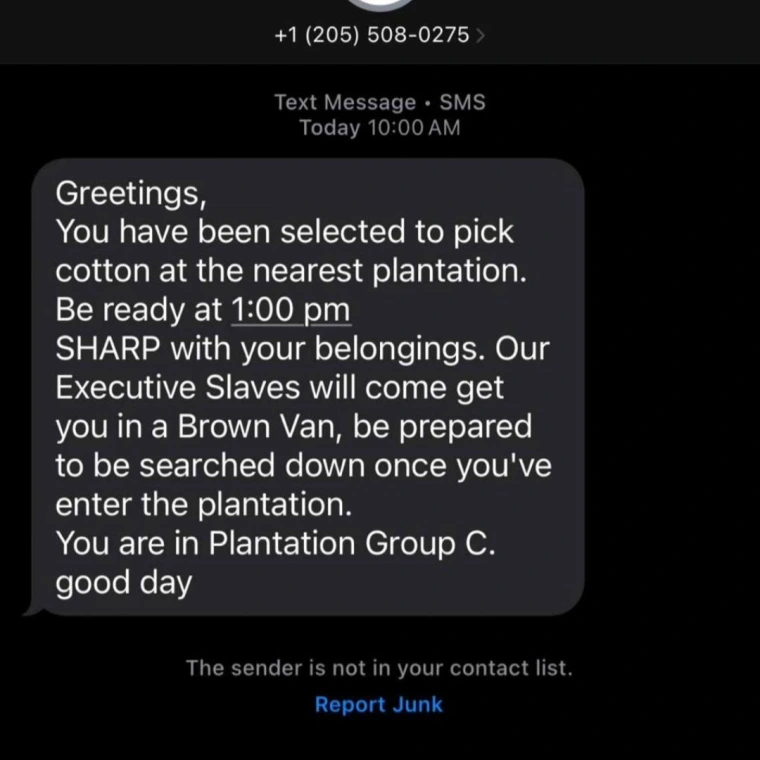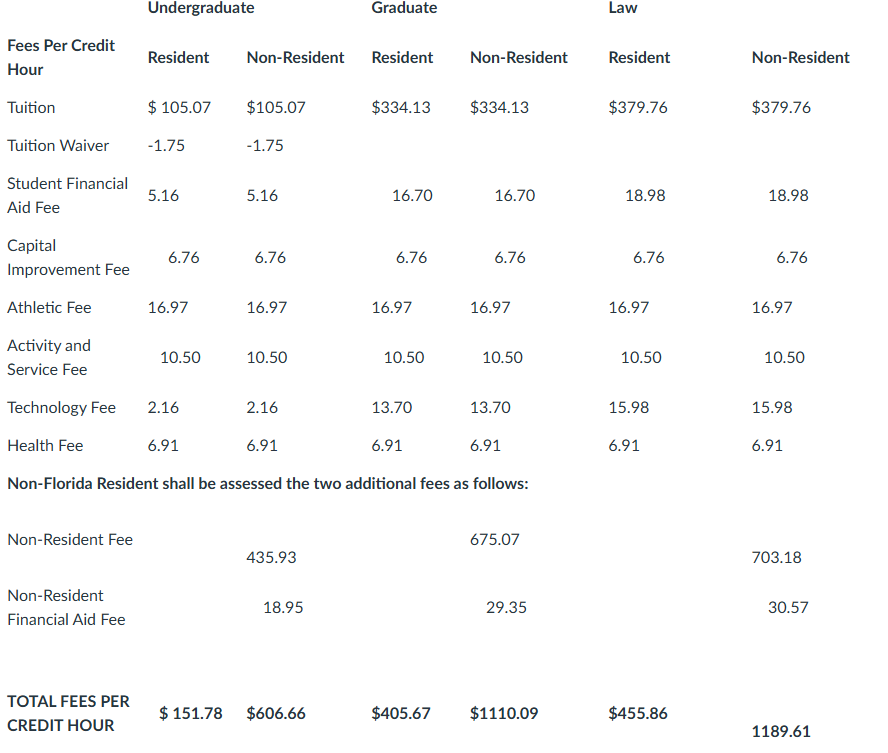A series of racist mass text messages targeting Black Americans following the 2024 U.S. Presidential election has ignited widespread outrage across the country. These messages, containing dehumanizing language and threats referencing the painful history of slavery, have been sent to children, college students and adults in at least 30 states. Recipients reported being told they were “selected to pick cotton at the nearest plantation,” a disturbing reminder of the nation’s history of racial violence and ongoing racial animus.
The Message: A “Joke” Gone Too Far?
The texts, sent anonymously to individuals’ phones, contained offensive and aggressive language, including statements such as, “Get ready to be picked up and sent to a plantation after the election.” These messages were not intended as pranks but rather as deliberate acts of hate meant to evoke the horrors of slavery and further dehumanize Black Americans.
“This isn’t just a joke—this is a deliberate attempt to spread hate and fear,” said Dr. Kimberly White, a sociologist at Howard University, in an interview with CNN (source). “It’s an attack on the humanity of Black people, grounded in a history of racial violence that continues to this day.”
For many, the texts were a traumatic reminder of the ongoing struggles Black Americans face. The timing, immediately following the election, heightened the sense of unease and fear among recipients, who felt targeted in a moment of political and social uncertainty.
Personal Accounts: The Impact on Students
Among those targeted by the racist texts were numerous students, including high schoolers and college students, who have shared the emotional toll these messages have taken.
“I felt mortified when I got that message,” said Aaliyah, a high school senior from Central Texas, who received one of the threatening texts. “It felt like everything I’ve learned about my history just came crashing down. To know that people still think like this, that they see me like this—it was hurtful.” (source)
Another recipient, Michael, a freshman at a California university, explained how the message made him feel both unsafe and disrespected. “I couldn’t believe it. I’ve never had to deal with something like this before, and to have it come from a random number just made it even worse. It made me question whether I’m safe in my own skin.”
An Ongoing Investigation
The FBI has launched a full investigation into the racist mass texts, which appear to have been sent via multiple digital platforms. Law enforcement is working to trace how the perpetrators were able to identify and target individuals by name, raising concerns about the misuse of personal data, possibly mined from social media and other online sources.
“These texts reflect a troubling misuse of technology,” said Chris Hoofnagle, a privacy expert and law professor at UC Berkeley, in an interview with CNN (source). “This is a serious security issue. When data is weaponized in this way, it shows just how vulnerable people are in the digital age.”
The messaging service TextNow, which was used in some of the attacks, quickly disabled accounts associated with sending these messages. However, the texts continued to spread across other platforms, raising questions about the effectiveness of current safeguards against digital hate campaigns.
Racism: A Deeply Rooted Problem
The mass text attacks underscore the deep-seated nature of racial dehumanization in America. From the brutal history of slavery to the Civil Rights Movement and beyond, Black Americans have faced systemic racism and violence. These texts are yet another example of the persistent assault on Black dignity and freedom.
Kenneth Gray, a retired FBI agent, emphasized that these texts are not an isolated incident. “This is part of a broader narrative of racial hatred that has been allowed to fester for far too long,” he said in an interview with CNN (source).
The texts have been especially disturbing for young people, including middle and high school students, as well as college students. Parents and school officials have raised concerns about the psychological toll these messages could take on vulnerable youth, amplifying the emotional damage caused by the racist harassment.
The Digital Divide and Racial Targeting
This incident highlights the intersection of race, technology, and privacy in today’s digital world. Personal data can be easily harvested from social media and other online platforms, making it easier for malicious actors to target specific communities. Many Black individuals, particularly young students, depend heavily on their phones for communication and education, making them more susceptible to being targeted by such hateful messages.
“We’re seeing how quickly technology can be used to amplify hatred,” said Dr. Tanya Williams, a communications professor, in an interview with NBC News (source). “It’s concerning to think that something as personal as your phone number can be weaponized in this way.”
What Comes Next?
As the investigation continues, civil rights leaders and experts are calling for stronger protections against digital harassment and hate speech. The use of technology to spread hate and fear underscores the urgent need for more robust regulations to prevent similar incidents in the future.
“We need stronger oversight on how personal data is used and how digital platforms are policed for hate speech,” said NAACP President Derrick Johnson in a statement to CNN (source). “This is not just about investigating one incident—it’s about preventing future attacks.”
The call for action is clear: this digital hate campaign is part of a much larger, deeply ingrained problem. As the nation continues its fight for racial justice, this incident serves as a reminder of the new challenges in the ongoing battle against racism in the digital age. Lawmakers, tech companies and civil society must work together to ensure that acts of dehumanization like these are not allowed to spread unchecked.
“This is a wake-up call for our nation,” Johnson said. “We must address the roots of this hate and ensure that it never takes hold again.”













